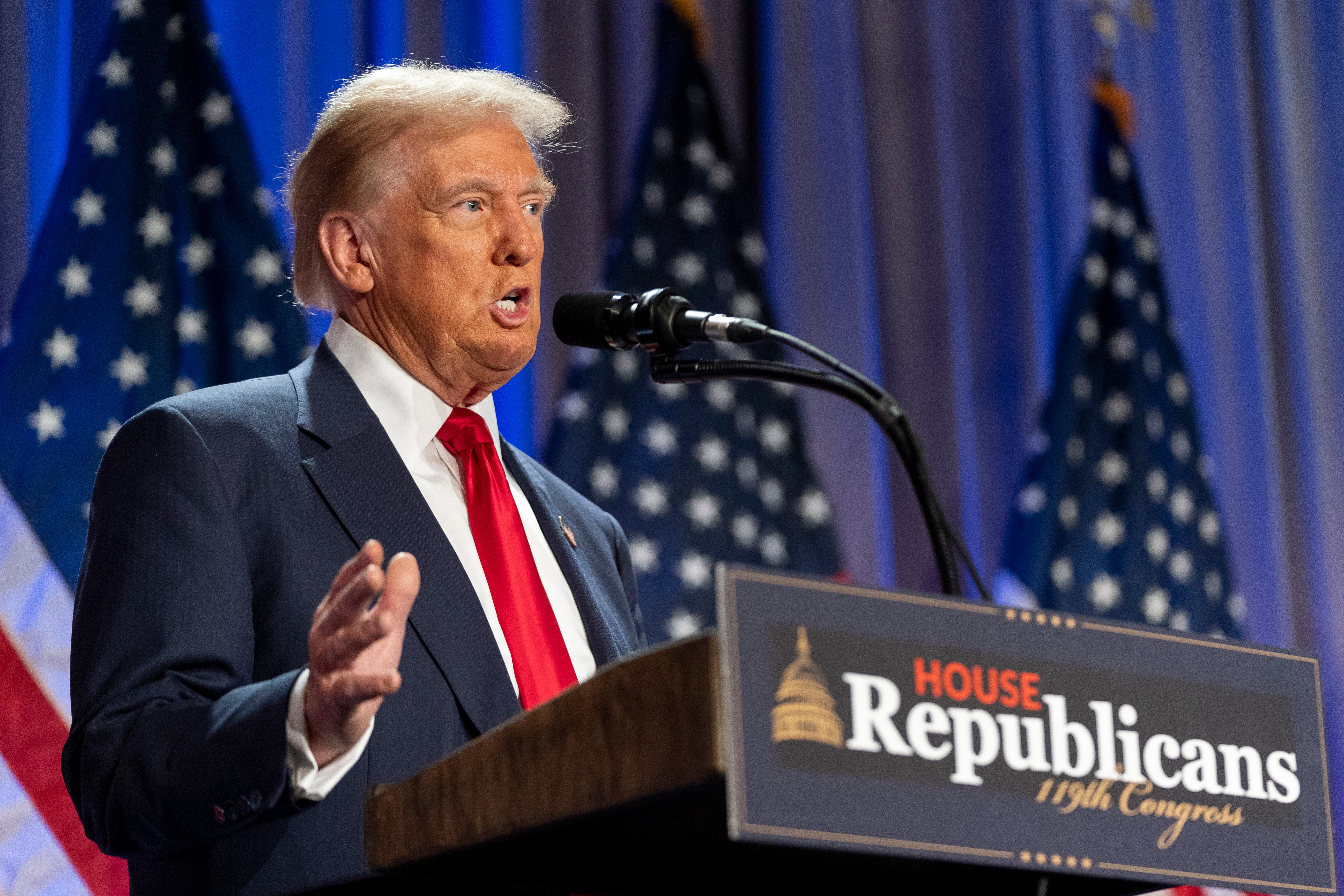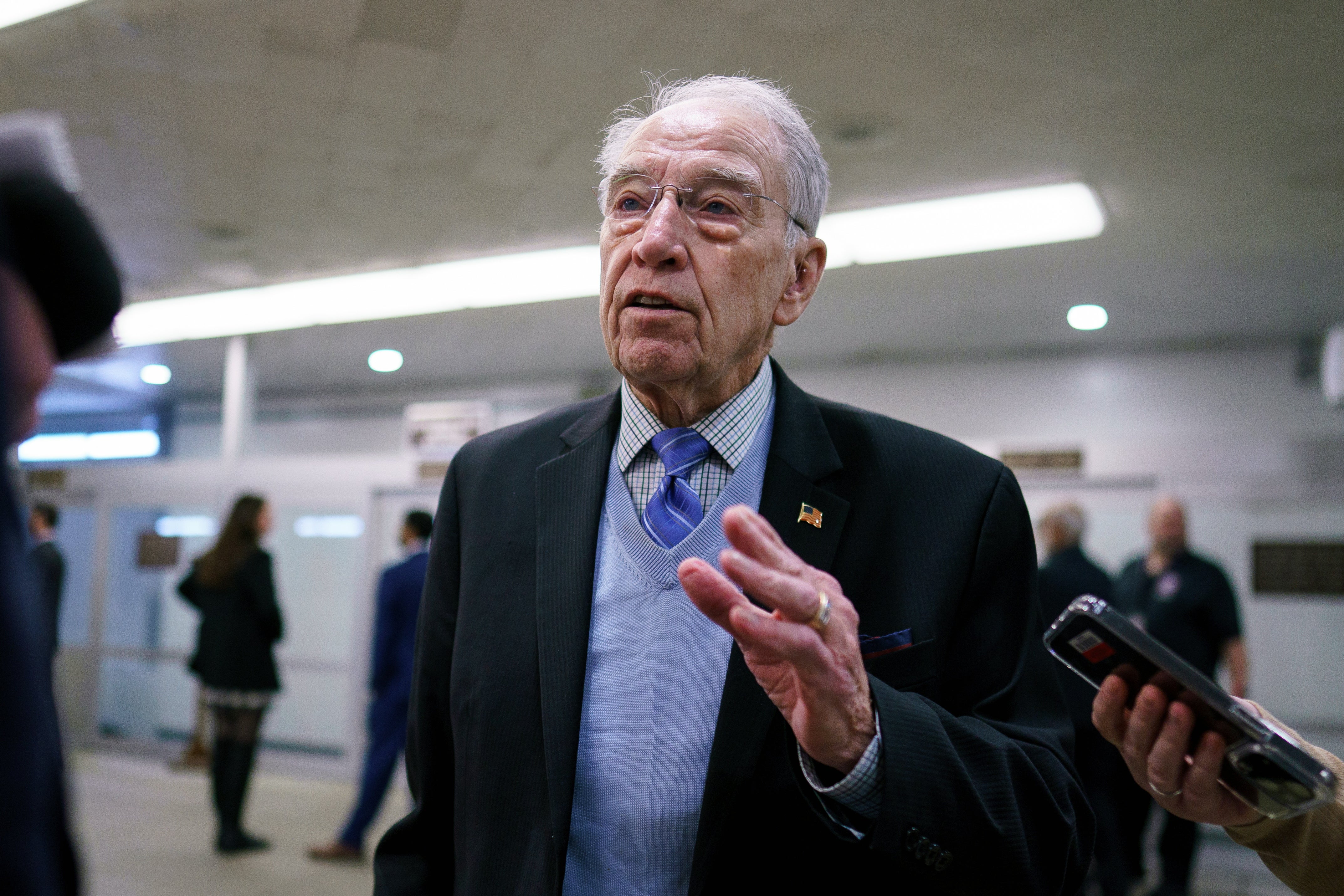On Monday evening, President-elect Donald Trump announced that he would impose a 25 percent tariff on products from Canada and Mexico on his first day in office. He also announced he would levy an additional 10 percent tariff on products from China until its government begins to address the smuggling of fentanyl into the United States.
None of this should be surprising, as Trump repeatedly threatened to impose tariffs throughout the 2024 campaign. When he spoke at the Economic Club of Chicago in October, he brushed off concerns about the economic impact the heavy fees would have on Americans, calling China a “very stupid country.”
Democrats did their best to raise alarms about the tariffs, with Vice President Kamala Harris insisting they would amount to a “national sales tax” since the cost of them would not fall on foreign companies but rather on U.S. consumers.

Despite Trump’s announcement this week, Republicans continue to downplay the tariff threat, with Iowa Senator Chuck Grassley even weighing in on Tuesday to say that he still sees them as a “negotiating tool.”
“I’m concerned about the potential of it,” he told reporters. “But right now, I see everything that Trump’s doing on tariffs as a negotiating tool. And we’ll have to wait and see how successful he is about that.”
Republican ad maker Brad Todd famously insisted that the press takes Trump “literally but not seriously,” while his supporters take him “seriously but not literally” — a notion that has become the defining axiom of Trump’s time in politics. Earlier this year, Trump said that he “would encourage [Russia] to do whatever the hell they want” if NATO did not pay its obligations to the organization.
In response, some Republicans called Trump’s remarks a “stupid thing to say” but others like Senator Roger Marshall of Kansas said “people need to realize that like, you should take everything that he says seriously, but not literally.”

But when it comes to tariffs, other countries cannot afford to play the guessing game about whether Trump is being serious with his threats.
On Tuesday, Mexican President Claudia Sheinbaum said a tariff “would be followed by another in response, and so on until we put at risk common businesses.” The newly-minted president warned that “would cause inflation and job losses in Mexico and the United States.”
Canadian officials also blasted the threat, with Ontario Premier Doug Ford calling it “the most insulting thing I’ve ever heard from our friends and closest allies, the United States of America.”

Their comments are a sign that world leaders are ready to take Trump at his word. The same will likely be true for European allies in NATO.
Trump’s tariff episode can also be instructive for the president-elect’s other policy proposals. A Scripps/Ipsos poll found that while a slight majority of 52 percent support Trump’s promised mass deportations of undocumented immigrants, that number drops by 15 points if it means families will be separated and by 10 points if it means food prices will increase.
A Pew Research Center survey showed that 43 percent of people who support mass deportations also say that undocumented immigrants should have a means to stay in the United States. This might be another example of voters taking Trump seriously but not literally: They may like the idea of mass deportations in theory but not when it comes to their neighbors, their coworkers or their classmates.
But Trump’s hiring of Tom Homan, the former acting director of Immigration and Customs Enforcement, and Stephen Miller, the anti-immigration hardliner, for his White House shows he is serious and literal about wanting to to conduct mass deportations.
Of course, mass deportations would take more work than slapping on a tariff; there’s the matter of personnel, cooperation with state and local authorities, and funding from Congress. But he has shown a real desire to implement the program.
Trump is a known liar and promoter of outright disinformation, whether talking about his previous accomplishments, his wealth and whether migrants in Ohio are terrorizing animals. But he has been strikingly honest about what he wants to do when he comes back to Washington. Even without the filter of the press, he directly communicated it to Americans on multiple occasions. They might do well to take him “seriously and literally.”

